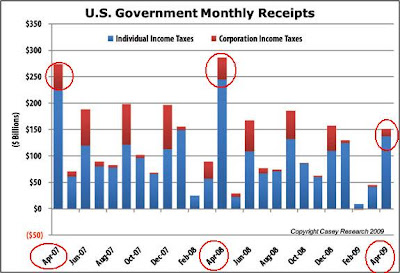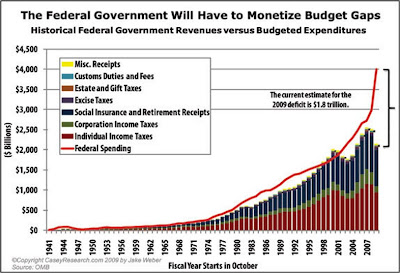This is interesting, and probably an eye-opener for most Western readers.
Most Japanese mortgages are 'recourse' loans meaning that the borrower still owes the full amount of the loan even in the event of foreclosure. One of the reasons for this is that so many Japanese residential buildings are not intended to outlast the 35 year mortgage and depreciate from the day they are bought.
The Japanese government promoted officially backed mortgage programs to keep the economy going, cutting down payments to zero from the traditional 20 percent. This lured in buyers who really could not afford the houses, and are often the first to have their pay cut in an economic downturn.
Japan uses a semi-annual bonus system as part of its pay structure for employees, the bonus portion of which is more readily sacrificed for the company good.
Please consider these things in the context of the governance of Japan which as we have said is semi-feudal, ruled by a few corporations and the wealthy elite in partnership with essentially a one party government.
This will go a long way in helping to understand the "Japanese disease" of economic stagnation. You start by crippling the middle class through debt indebtedness to a corporate elite.
The Japan Times
The only bonus you'll get this summer is the sun
By Philip Brasor
June 28, 2009
One of the cleverest ideas developed by the Japanese business world is the distribution of semiannual "bonuses" to employees. Usually, a bonus is tied to a company's good fortune or an employee's performance. Japanese workers have always deemed them to be part of their salaries and tend to plan their finances accordingly. Employees and employers look at bonuses differently: The former see them as an entitlement, while the latter use them as a safety valve.
With the onset of the recession, Japanese companies have exercised their option to reduce or even cancel bonuses, and for the past month the media has been buzzing with a new term — June crisis — to describe the situation of workers who may not be able to meet mortgage payments as a result.
June and December are bonus months, and 45 percent of Japanese people with housing loans have contracts that require them to pay larger amounts in these months than they do in other months, in some cases as much as five times.
Publications and TV news shows have been filled with human-interest stories about people suddenly faced with the possibility of losing their homes. The Asahi Shimbun tells of a 40-year-old housewife whose husband did not receive a bonus this month and apparently won't receive one in December either. Even worse, his salary has been cut by 20 percent. They have 20 years left on their 35-year mortgage. They pay only ¥80,000 a month toward the loan, but during each bonus month they pay ¥400,000. With one child in university and another in junior high school, they have saved very little. "When we took out our mortgage," the woman says, "it was unthinkable that my husband's bonus would be zero."
According to the Ministry of Internal Affairs and Communications, homeowners now spend an average of 20.5 percent of their disposable income on housing loans, the highest portion ever. Meanwhile, the Japan Business Federation has reported that total bonus payments this June is 19 percent less than the total for last year, the greatest year-on-year drop since they started compiling statistics in 1959.
In the past, company labor unions would protest to employers when bonuses were cut, calling bonuses "life expenses," but recently they have taken management's side and agreed that bonuses should be tied to company performance. But the roots of the June crisis go deeper. Housing has always been the government's main means of economic stimulation. During the 1990s, when the economy was stagnant, housing was pretty much the only sector keeping the economy going thanks to the Flat 35 scheme, which allowed home buyers to take out loans with only 10 percent down payments instead of the usual 20 percent. The government's new stimulus measures eliminate down payments altogether for Flat 35. These loans are guaranteed by a government entity called the Japan Housing Finance Agency.
A person who wouldn't normally be able to buy a home can more easily buy one, and as we have seen with the subprime loan fiasco in the United States, lowering the bar for home ownership can have disastrous consequences. People who bought homes in the '90s under the Flat 35 scheme with "relaxed" (yutori) interest rates are the ones most affected by the June crisis.
NHK illustrated this tendency on the program "Yudoki Network" with the story of a former taxi driver who received a notice from JHFA saying that since he was delinquent for six months he would have to pay the balance of his loan — more than ¥24 million for a ¥36 million condo he bought in 1998 — or the condo would be auctioned off. The man's situation is worse than it sounds, because if his condo is repossessed, he still has to pay off his loan.
Japanese mortgages are recourse loans, meaning the borrower is still liable even after foreclosure. Depending on the state, most banks in America offer nonrecourse loans, which are secured by collateral, usually the property itself. Once they foreclose, the borrower's debts are gone. If you default on a recourse loan, you're messed up three times: you lose your home, you lose all the money you sunk into it, and you still have debt. Wait, make that four times — your credit rating is garbage.
The taxi driver opted to sell his condo before it went on the block (where it would probably sell for about 80 percent of its market value), but the realtor he hired said she could get, at most, ¥25 million for it. With all the fees involved, he'd still end up ¥3 million in the hole. Fuji TV's "Sakiyomi" profiled an unemployed sushi chef facing foreclosure who still owes ¥9 million on his three-bedroom Chiba Prefecture house. All the realtors he's talked to say his property is worth about ¥5 million but the only offer he's gotten is ¥2.5 million. His family has already left him and he's contemplated suicide. These cases are accompanied by advice from financial planners that boils down to refinancing the loan so that monthly payments are reduced. But that means extending the loan period and, as a result, paying more money in the end for a home that will likely be worth nothing, which they rarely mention. Recourse loans are directly related to Japan's infamous "scrap-and-build" housing policy. Banks can't be expected to lend money for houses that start losing value the moment construction is completed if those houses are used as collateral.
There are more than 6 million vacant houses in Japan. Most will never be sold, because they're pieces of crap that were never meant to outlast their 35-year mortgages. Condominiums are no better. On average, Tokyo "mansions" built in 1990, when land values peaked, were selling for half their original prices by 2004.
Interviewed on NHK Radio, economist Akiko Hagiwara said that people who realistically can't afford homes have been suckered into buying them in order to prop up the economy. People in this income bracket are also typically the first to get laid off or have their bonuses cut. "They're victims of the government," she said.










































